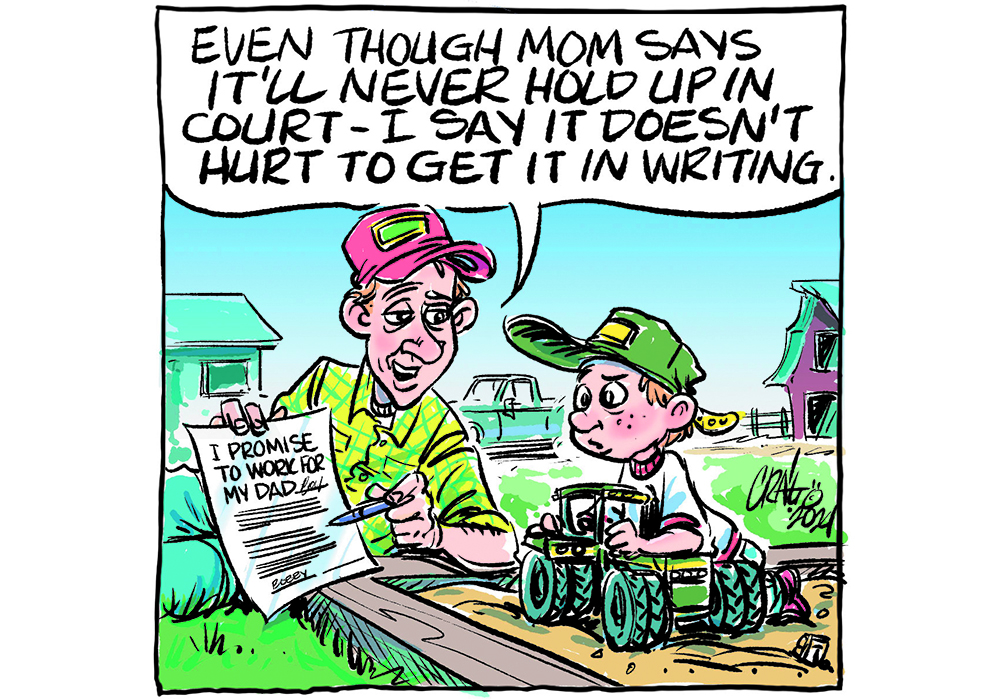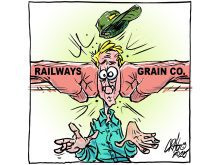As we head into harvest season, farmers are again faced with the perennial problem of getting enough people to take off this year’s crop.
Traditional solutions include recruiting recently retired farmers who like to jump on the combine, grain cart or truck for a few weeks of work, or younger people from the farm community if they can be spared from their own operations.
These solutions provide experienced, skilled hands that can drop seamlessly into a farm operation. But they are a shrinking resource. For decades, farms have increased in size, leaving fewer families on the land, and those that are left are getting smaller. Older farmers are aging out.
Read Also

Farmer ownership cannot be seen as a guarantee for success
It’s a powerful movement when people band together to form co-ops and credit unions, but member ownership is no guarantee of success.
Then there is the question of competition.
Younger people from the farm come with the standard “farm kid” skill set; that is, a strong work ethic and willingness to do sometimes dirty, physical work for long hours. They are resourceful, able to work independently and solve problems on the fly.
They can do repairs and maintenance, drive a variety of vehicles and machinery, run their sophisticated electronics, and maybe even have some metal and wood fabrication skills.
The trouble is, these skills also make them highly sought by other industries, and it’s tough for a farm to match the wages, benefits and security of an industrial job.
Earlier this month, Western Producer journalist Ed White shone light on an overlooked source of capable hands to keep agricultural engines running: Indigenous communities. This population is rural and often located near farm operations. Unlike much of Canada’s aging population as a whole, Indigenous communities boast the youngest demographics in the country.
This suggests an opportunity.
First Nations are taking a new look at their land holdings with a view to their long-term future. Much First Nations land is now rented to outside farmers, but there is movement afoot to farm this land themselves.
Like any non-farm population, Indigenous people may lack what they need to work in agriculture, not only the “farm kid” skills, but the business experience needed to set up and run a successful agricultural operation.
Farmers have the knowledge but need people, Indigenous communities have the people but need the knowledge. A meeting of minds between the two groups could prove fruitful.
In the meantime, both communities must recognize they will compete with other industries for the same pool of young talent. Would-be employers must consider how to make farm work appealing not only as a job, but a career.
One challenge is to somehow reassure prospective workers that they will enjoy decent compensation and working conditions. Farming as an industry is exempt from many labour laws in the Prairie provinces. This includes things such as minimum wages, hours of work, overtime pay, rest breaks, vacation, layoffs and termination, among others.
Complicating this issue is that some farm-adjacent jobs, such as bookkeepers and mechanics, are covered under the legislation. Conceivably, employees working on the same farm would be protected, or not, under the same rules.
Anyone considering a career in agriculture is aware that it includes cycles of long hours and frenetic activity alternating with slow times. But in a world of competition for the same talent, farms will need to demonstrate and reassure workers that they will be treated fairly and that agriculture is a place where they can build a future for themselves and their families.
Karen Briere, Bruce Dyck, Barb Glen, Michael Robin, Robin Booker and Laura Rance collaborate in the writing of Western Producer editorials.















